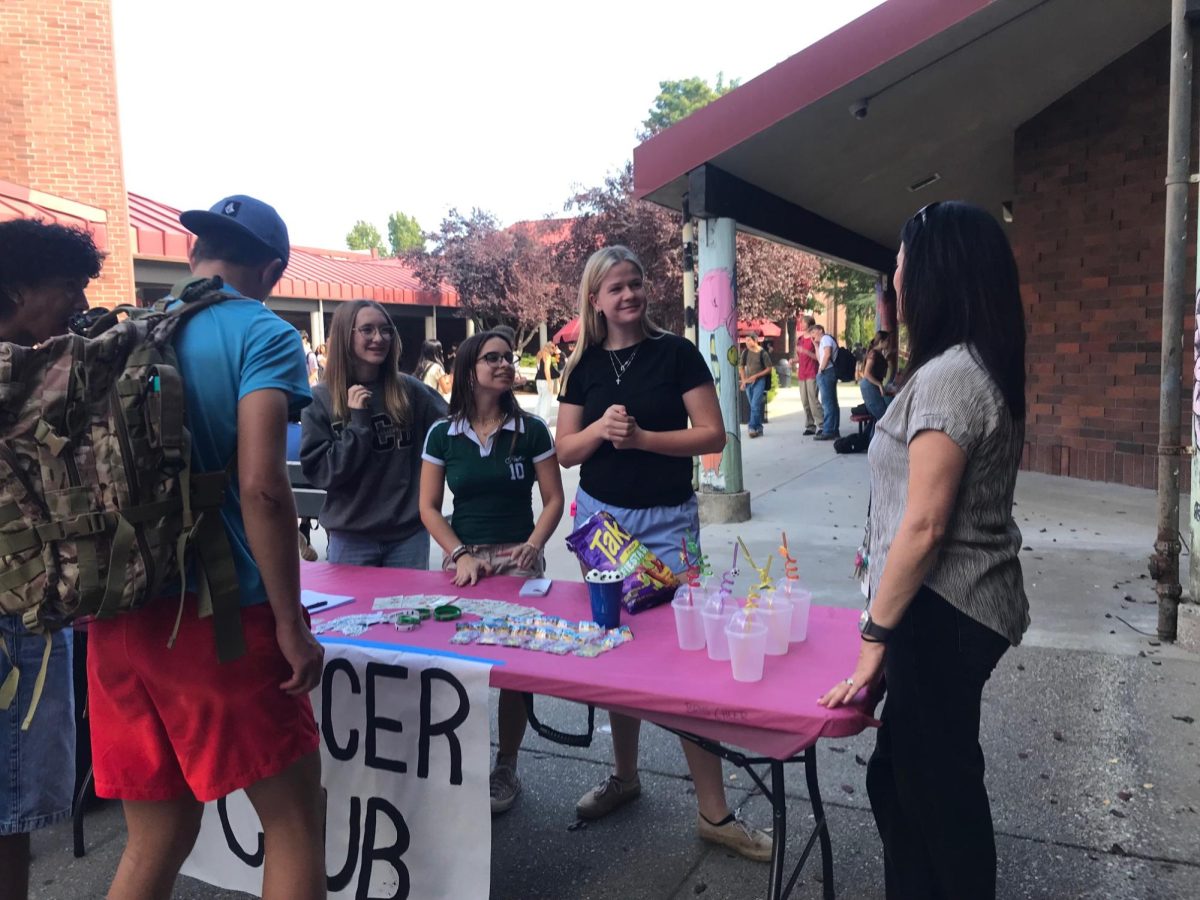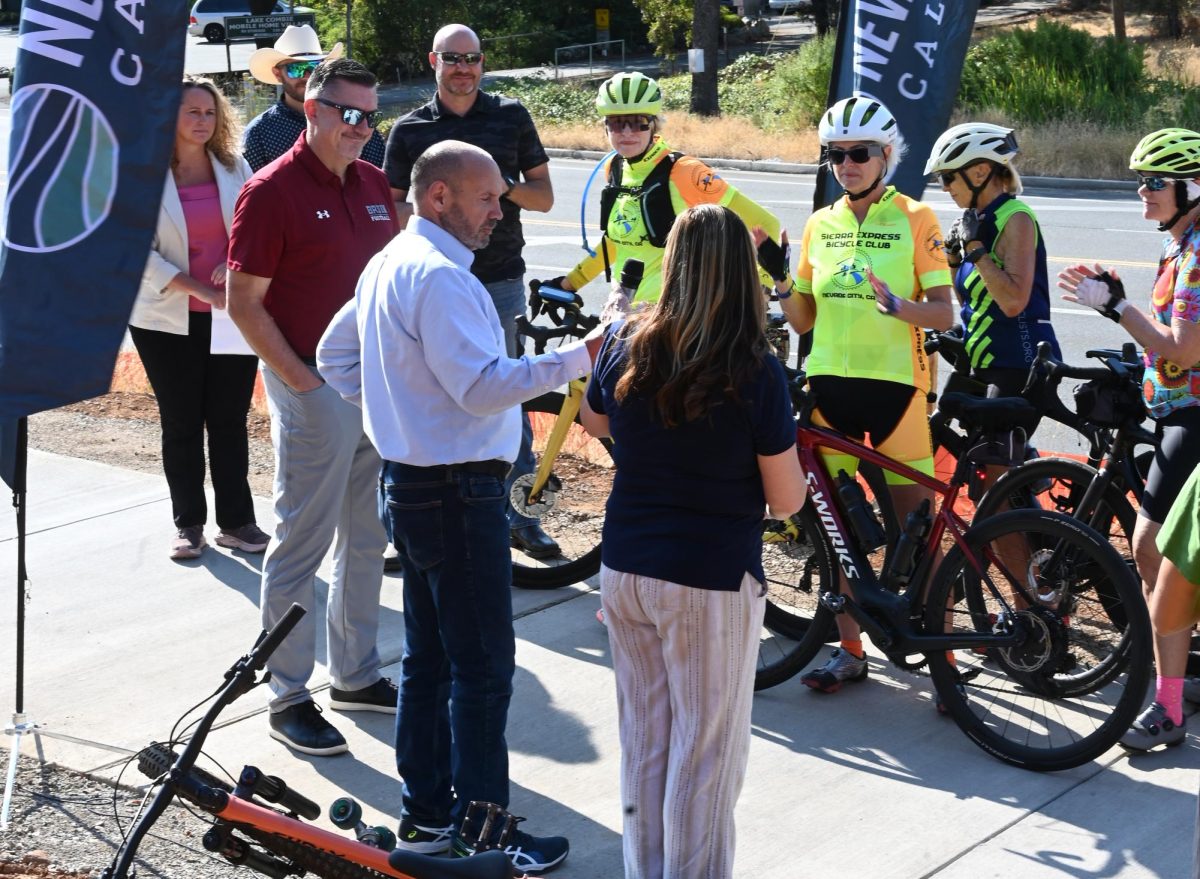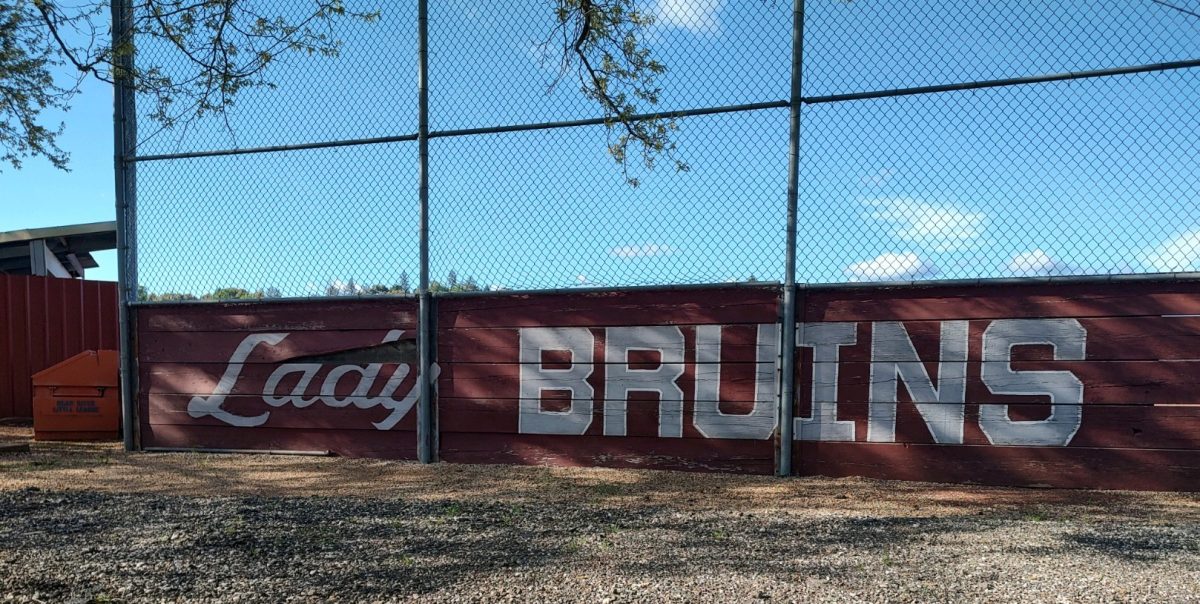The boom in technology that has happened over the past few decades had completely changed many aspects of society. Communication and entertainment are two of the most commonly cited cultural alterations, but we, as high schoolers, have seen another technological trend take place. Over such a small time period, education and skill building have been reshaped around the rise of mobile laptops, educational programs, and even third-party websites. The need to go to the library to consult a book is dwindling; people today learn new skills via the Internet.
In this age, people are able to expand their minds in new ways, thanks to today’s tech. Wikipedia is still a great site for finding sources, and Khan Academy has upwards of 2,100 educational videos ranging from basic math to complex calculus. Both are valuable resources for high school students. Junior Grace Billingsley explained how she uses the Internet if she doesn’t understand a concept in class.
“Usually if I didn’t understand something in class, I go back through my notes, and, if I still don’t understand it, I go on Khan Academy or Crash Course,” she said. “Yeah, I use YouTube.”
As is evident, the rise of technology is a powerful tool for curious minds. But it has reached even those who normally wouldn’t want to learn. Audiobooks and podcasts have been a blessing to students who hate reading, and cell phones ensure the availability of said tools. English teacher Mrs. Noah revealed just how much better she can reach students with NoRedInk, a website dedicated to helping students become familiar with grammar structures.
“Yeah, you can see [the grammar] in action, and it throws in those little references to your interests,” she said. “[The English board] sat down and scoped out NoRedInk to check out the lessons for each consecutive year.”
Teachers clearly aren’t the only people who benefit from educational websites. Junior Connor Ronka talked about what he does when he wants to learn more about a topic in class.
“Well, generally … I would probably ask somebody who had already taken the class and knows what they’re doing, or I would Google it,” he said.
Of course, one has to be careful when using the Internet to learn things you missed from class.
“Google isn’t my first choice, because some people use different methods or formulas than what we’re using,” warned Ronka.
School is only a very limited area of application for the Internet, however. Senior Ethan Brassfield described how the Internet has helped him learn skills at home.
“The Internet has helped me learn how to cook some stuff, and some art techniques,” he said.
Brassfield’s experience is not an uncommon one. Many websites take advantage of the accessibility of the Internet to open up new avenues for learning skills. Skillshare, for example, allows anybody to teach an online class in an area they’re skilled at. YouTube has an entire educational section for students or just people looking to learn something new. And, of course, there are hundreds of Q&A websites that will answer questions ranging from physics problems to philosophical ones. Brassfield believes that it’s much easier to learn new skills by using the Internet.
“I think it’s definitely easier, because there are thousands, if not millions, of guides on how to do anything you could think of.”
Personally, I use the Internet in nearly every one of my classes, from learning how to draw perspective in art to understanding what my physics textbook means by rotational inertia. While it isn’t a good idea to try and use the Internet to the exclusion of an official course’s material, it is certainly a wonderful way to supplement your learning experience. At home, I’ve found the Internet more useful in learning piano than in-person lessons, and nearly every recipe I’ve used has originated from a website. If you haven’t already tried it out, maybe it’s time to see what skills the Internet can teach you.



































